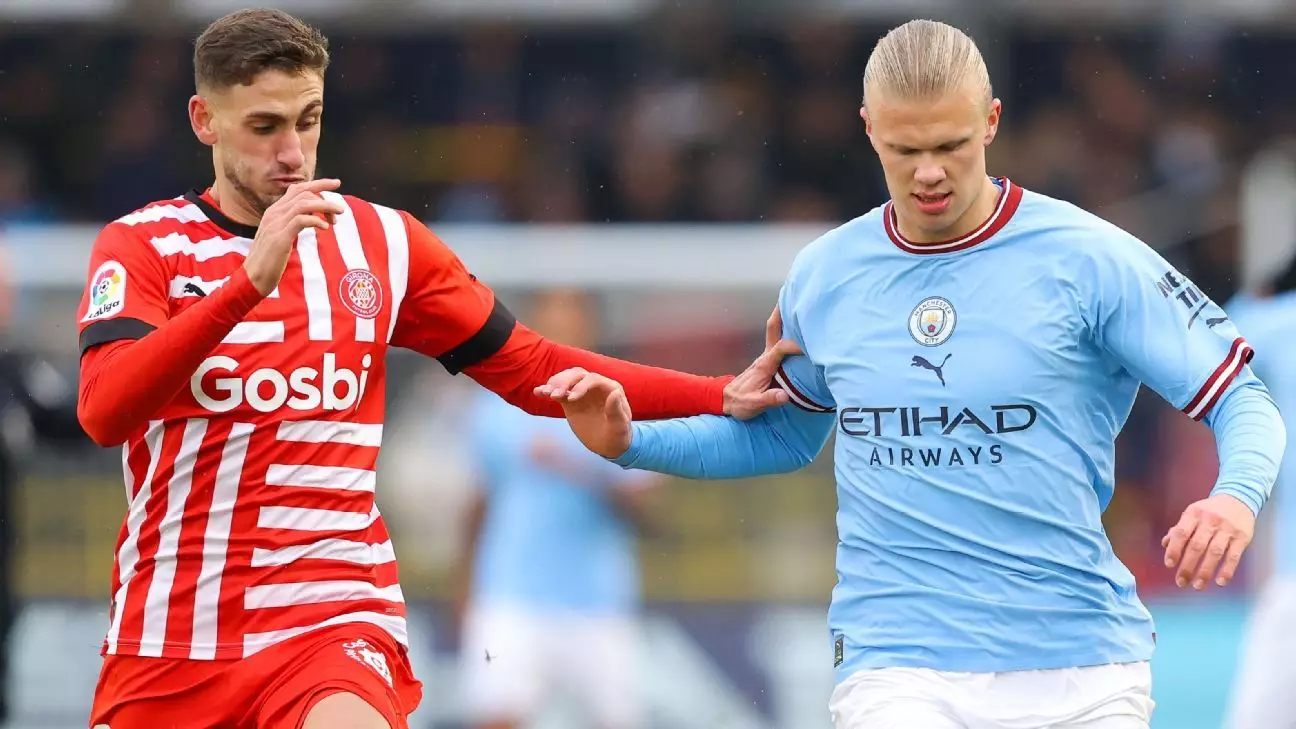Imagine a football fairytale where Girona, a team recently promoted from the Segunda Division, is just one victory away from winning LaLiga, surpassing the likes of Real Madrid, Atlético Madrid, and Barcelona. In this same scenario, Manchester City, a dominant force in the Premier League, has seen their title bid falter, settling for second place. While it may seem like an inconsequential situation, the potential ramifications of multi-club ownership come into play. UEFA president Aleksandar Ceferin has emphasized the need for strict regulations surrounding club ownership, aiming for transparency and to avoid any undue influence over clubs. The nightmare scenario would be if Girona were directed not to win LaLiga to ensure that City secures a place in the next season’s Champions League. This seemingly far-fetched notion is a genuine concern for UEFA and the sport as a whole.
Under UEFA regulations (article 5.02), teams within the same ownership group cannot compete against each other. In cases where two clubs from the same ownership group qualify for the same UEFA competition, the team that finishes higher in its domestic championship is awarded the place. If the two clubs finish in the same position, the one with the highest club coefficient is granted qualification. The worrisome scenario arises if Girona were to win LaLiga and City were to finish second in the Premier League. This outcome would grant Girona a Champions League spot, while City would be forced to settle for the Europa League. Consequently, Girona’s triumph could be detrimental to Manchester City, denying them the prestige and financial benefits of playing in the Champions League. While there is no suggestion that Girona would deliberately ease off in LaLiga to benefit City, the concern lies in the potential for undue influence.
The ties between Manchester City and Girona are undeniable. Girona’s club crest is proudly displayed alongside those of the other 13 clubs within the City Football Group (CFG) at Manchester City’s training ground, the City Football Academy. In August 2017, CFG acquired a 44.3% stake in Girona in a partnership with the Girona Football Group, owned by Pere Guardiola, the brother of City manager Pep Guardiola. Pere Guardiola currently serves as Girona’s chairman. Since then, CFG has increased its stake to 47%, with Pere Guardiola retaining a 16% stake and Marcelo Claure, the president of Bolivian team Club Bolivar, owning 35%. Over the seven seasons of their partnership, 15 players have directly moved from City to Girona. Furthermore, Simon Cliff, listed as CFG’s general counsel, also holds a position on Girona’s club board. These ownership and personnel connections raise concerns about the potential for undue influence.
The issue of multi-club ownership extends beyond Manchester City and Girona. Sir Jim Ratcliffe’s acquisition of a 25% stake in Manchester United and full control over football operations in the future highlights the need for UEFA to take action. If both United and Nice, also controlled by Ratcliffe’s INEOS group, were to qualify for the same competition, UEFA would need to navigate potential conflicts of interest. Nice’s strong performance in Ligue 1 positions them for Champions League qualification, which might delay any difficult discussions for at least a year if United continues to struggle in the Premier League. UEFA has dealt with similar situations in the past, allowing RB Leipzig and FC Salzburg to compete in the Champions League despite both being owned by the Red Bull Group. In order to meet UEFA’s requirements, Salzburg made changes to its board to demonstrate a clear separation in control from Leipzig.
UEFA’s Club Financial Control Body has previously accepted the admission of clubs with shared ownership models into European competition. Examples include Aston Villa and Vitoria Guimaraes, Brighton & Hove Albion and Union St-Gilloise, and AC Milan and Toulouse. However, the close and significant links between Manchester City and Girona necessitate a decision from UEFA this summer, as both clubs are on track to secure Champions League qualification. The potential outcome of Girona winning LaLiga while City fails to retain their Premier League title could serve as a catalyst for substantial changes in the rules and regulations governing multi-club ownership.
Given the potential threats and ramifications of multi-club ownership, the issue demands transparency and strict regulations to maintain the integrity of the sport. UEFA must carefully review ownership structures and ensure that clubs within the same ownership group do not unfairly influence each other’s outcomes. Adequate separation and clear lines of control should be established, with UEFA playing a crucial role in overseeing compliance. It is essential for football’s governing bodies to protect the competitive nature of the game and prevent any unfair advantages resulting from multi-club ownership.
Multi-club ownership poses a significant threat to the integrity of football. The hypothetical scenario of Girona winning LaLiga and potentially denying Manchester City a Champions League spot demonstrates the potential ramifications of this complex issue. While UEFA has previously allowed certain clubs with shared ownership models to compete, the strong links between City and Girona demand a decision this summer. The sport’s governing bodies must prioritize transparency, establish strict regulations, and ensure that clubs within the same ownership group do not unduly influence each other’s outcomes. Only through these measures can the competitive nature of football be preserved.
